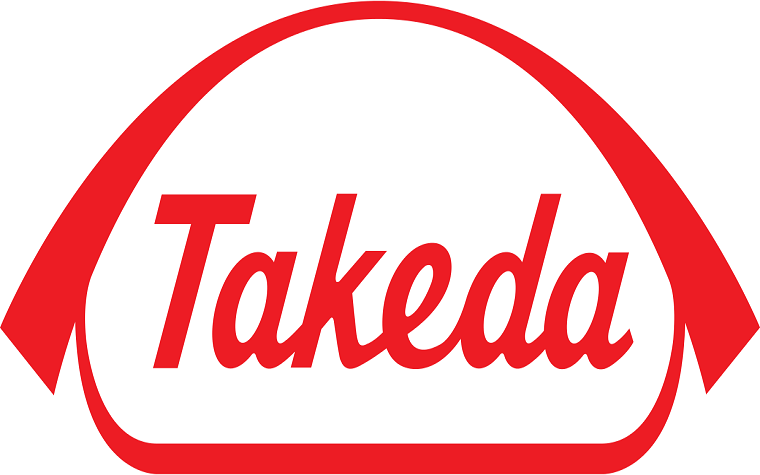Takeda Pharmaceutical Company issued the following announcement on June 3.
Takeda Pharmaceutical Company Limited [TSE:4502] (“Takeda”) today announced a new analysis of real-world data comparing the safety data of the gut-selective biologic Entyvio® (vedolizumab) and tumor necrosis factor-alpha (TNFα)-antagonist therapy. The results showed numerically lower rates of serious infections (SIs) [6.9% vs 10.1%; odds ratio (OR) 0.67, 95% confidence interval (CI) 0.41-1.07] and significantly lower rates of serious adverse events (SAEs) [7.1% vs 13.1%; OR 0.51, 95% CI 0.32-0.81] in patients treated with Entyvio (n=436) compared to TNFα-antagonist therapy (n=436). This analysis of the VICTORY (Vedolizumab Health OuTComes in InflammatORY Bowel Diseases) Consortium evaluated the occurrence of adverse events (AEs) in patients with ulcerative colitis (UC) and Crohn’s disease (CD) who received vedolizumab compared with TNFα-antagonist therapy and was presented as an oral presentation at the 2018 Digestive Disease Week® (DDW) annual scientific meeting held from June 2-5 in Washington, D.C.
Data from 872 UC and CD patients (n=334 UC, n=538 CD; n=436 Entyvio; 47% male, median age 35 years), from the UC and CD VICTORY Consortium database, were analyzed to compare the safety of Entyvio to TNFα-antagonist therapy. Patients receiving Entyvio were matched (1:1)* to patients on TNFα-antagonist therapy using propensity scores to control for baseline differences between groups. Among patients on biologic monotherapy (n=247; n=142 Entyvio), Entyvio-treated patients were observed to have numerically lower rates of SIs (4.1% vs 10.1%; OR 0.37, 95% CI 0.13-1.02) and significantly lower rates of SAEs (4.7% vs 14.5%; OR 0.29, 95% CI 0.12-0.73). Among patients who were on biologic therapy in combination with both steroids and an immunomodulator (n=137; n=69 Entyvio), rates of SIs (11.5% vs 13.9%, OR 0.81, 95% CI 0.31-2.07) and SAEs (14% vs 14%, OR 0.66, 95% CI 0.27-1.65) were similar between Entyvio and TNFα-antagonist treated patients.Concomitant immunosuppressive use was associated with an increased risk for both SI and SAE, and rates were similar between Entyvio and TNFα-antagonist therapy when using concomitant immunosuppressive therapy.**
“As we add to the extensive body of real-world evidence supporting the safety profile of Entyvio, it is encouraging to see the lower rates of serious infections and adverse events as compared to TNFα-antagonist therapy in this rigorous analysis,” said Parambir Dulai, M.D., Research Fellow, University of California San Diego, and Lead Investigator of the VICTORY Consortium analyses. “Further studies will seek to understand the potential impact of gut-selective treatment versus systemic immunosuppression on clinical safety in the real world.”
Further safety analyses from the GEMINI studies, also presented at DDW, support the safety profile of Entyvio. Results from a post-hoc analysis of interim data from the GEMINI long-term safety study (n=421; UC 190; CD 231) show nearly two-thirds of patients with UC (64%) and more than half with CD (55%) persisted with Entyvio treatment for three years, with low rates of discontinuation due to AEs, and treatment persistence rates higher in patients without versus with prior TNFα-antagonist failure (UC p=0.18: 69% vs 61%; CD p<0.01: 68% vs 51%). In addition, the GEMINI open-label extension (OLE) study showed that patients who were TNFα-antagonist therapy naïve experienced significantly fewer AEs (94 vs 275 per 100 patient-years) and SAEs (10 vs 18 per 100 patient-years) compared to TNFα-antagonist -experienced patients. Data from the GEMINI post-marketing (PM) setting were also analyzed and reported that a similar number of patients reported AEs in both groups, but limitations of PM safety reports, including incomplete data, must be considered when interpreting these results.
“Long-term remission and a well-established safety profile are key factors when it comes to treating chronic conditions like UC and CD,” said Karen Lasch, M.D., Medical Head, GI Specialty, U.S. Medical Office, Takeda. “We are grateful for the work of groups like the VICTORY Consortium and pleased that results from multiple studies continue to support the safety and effectiveness of Entyvio.”
For a full list of poster titles and authors at this year’s DDW meeting visit, http://www.ddw.org/attendee-planning/online-planner.
Original source can be found here.









 Alerts Sign-up
Alerts Sign-up